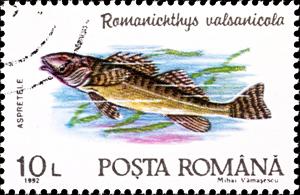‘Witness to evolution’ claim—a very fishy story

According to the BBC, the very rare asprete fish, Romanichthys valsanicola, is said to have survived unchanged for ‘65 million’ years. It is now found only in a fast-flowing section of Romania’s Valsan River. Construction of dams is blamed for asprete numbers dwindling perilously near extinction.
Recently, biologist Andrei Togor was ecstatic to discover 12 of the fish still living in the river. “Having an Asprete in front of our eyes was fantastic. It’s one of the biggest rewards a field biologist can get.” However, he urged: “It was here 65 million years ago. People cannot just destroy it in 50 years—it’s not right,” he says.
Fellow biologist Nicolae Craciun agreed. “The Asprete is a living fossil, they need to be protected with the utmost importance by scientists and conservationists,” he said. “They are witnesses of evolution.”
Really? Asprete fish are still asprete fish, even after all that supposed(!) time. This is stasis, the opposite of evolution (see creation.com/stasis). The evidence of ‘living fossils’ supports the Bible’s eyewitness account of creation. All creatures were created (only about 6,000 years ago, not millions) to reproduce “after their kind”. That is exactly what we, and the rest of creation, witnesses.
- McGrath, S., Back from the dead: Race to save Romania’s 65 million-year-old fish; bbc.com, 8 Nov 2020.


Readers’ comments
Comments are automatically closed 14 days after publication.